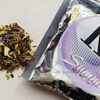ADHD Stimulant Meds: Childhood vs Teens
Taking stimulant ADHD meds (attention deficit/hyperactivity disorder) beginning in childhood for an extended period of time does not increase a young person’s risk of developing a substance abuse problem later in life, according to a new study.
While this new information will likely be a relief to many parents of children with ADHD, the study results, published in the Journal of American Academy of Child & Adolescent Psychiatry, also found that young people who start stimulant treatment in adolescence – around middle or high school – do face a high risk of substance abuse.
ADHD Stimulant Medications Study
Almost 1 in 8 high school seniors in the US have used stimulant or non-stimulant medication therapy for ADHD.
Researchers at the University of Michigan analyzed data from 40,000 high school seniors who answered questions about ADHD symptoms, use of stimulant medications, and history of substance abuse as part of the Monitoring the Future study.
The results showed that teens who began using stimulant treatment early in life and steadily maintained use through their teenage years did not face a higher risk of substance abuse compared to peers who were never on ADHD meds.
The researchers cautioned that the increased risk for substance abuse when ADHD drugs were started in the teen years may not necessarily be related to the stimulants, but to other factors such as emotional problems or mood disorders that are commonly seen in untreated ADHD. They advise doctors to carefully monitor teens started on stimulant meds for substance abuse.
Overall, the results support the idea that earlier treatment of ADHD is better, and that stimulant meds alone do not factor into the risk that a child will turn to illegal substances during their teens.







